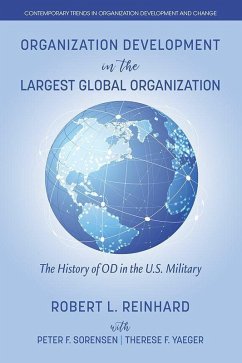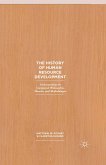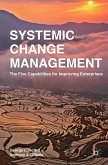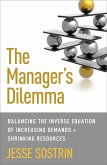The U.S. military, as the core constituent of the Department of Defense, collectively represents the largest and most complex organization on earth. As such, the U.S. military implemented the largest formal OD programs in the world. These programs, from inception to present day, utilized diverse and evolving OD intervention typologies to garner congruence with the environment. The research for this book, accomplished using an inductive, grounded theory approach, examined the initiatives that fostered the use of OD intervention typologies. The findings revealed three major epochs of OD interventions that span a 50-year timeline. The epochs include: (1) Traditional OD; (2) Total Quality Management (TQM); and (3) Continuous Process Improvement (CPI). The epoch of Traditional OD represents the use of human process interventions while TQM and CPI represent the use of technostructural interventions. In the end, the relationship between organization design and culture, and the selection of OD intervention typologies, were best explained using variables that explicate diverse environmental occurrences that influenced senior military leaders' perceived need for specific OD interventions. These perceived needs were predicated on the requirement to exploit vital resources in an effort to bolster warfighting operational readiness in support of the American citizenry.
Dieser Download kann aus rechtlichen Gründen nur mit Rechnungsadresse in A, B, BG, CY, CZ, D, DK, EW, E, FIN, F, GR, HR, H, IRL, I, LT, L, LR, M, NL, PL, P, R, S, SLO, SK ausgeliefert werden.









